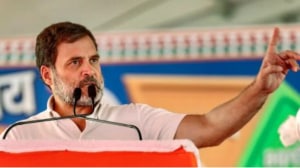New Delhi has objected strongly to the curbs imposed by the US and European governments on their banks,restricting them from lending to emerging economies including India. The banks,having benefited from multi-billion dollar government bailouts,have no choice but to agree to the conditions.
In its position paper for the Group of 20 meeting in London on April 2,India has also voiced concerns about protectionism both in goods trade and in terms of the curbs put on labour mobility by developed countries. Indias IT and BPO sectors have been hit hard by the raised barriers abroad for low-cost skilled workers.

Since the onset of the global financial crisis,foreign debt inflows into India have been reduced to a trickle. During April-September 2008,India Incs external commercial borrowings dropped to a mere $3.3 billion compared with $11.12 billion raised over the same period the previous year. With foreign banks and institutions forced by their governments to lend domestically,the situation is unlikely to improve.
There is a need to eliminate all traces of protectionism from financial rescue packages, an official involved in drafting the Indian position paper told The Indian Express.
Banks were given official support on condition implicit or explicit that they focus on domestic lending. This is inconsistent with managing a globally integrated economy and is particularly harmful to developing countries such as India, another official involved in the sherpas meeting on March 11 said.
Sherpas are aides to G-20 leaders,and do all the background work,including preparing the draft communication. Montek Singh Ahluwalia,Deputy Chairman,Planning Commission,is Prime Minister Manmohan Singhs Sherpa for the April 2 meeting. Ahluwalia will leave for London with a team of key finance ministry officials on Monday; the PM follows on Tuesday.
India has called upon the G-20 to endorse the need to eliminate all traces of financial protectionism in its final communique. This,together with a more powerful message on trade protectionism,will enhance the credibility of the group,it has said.
Story continues below this ad
Member countries must not increase existing levels of protection or put fresh barriers till 2010 as was discussed in the Washington summit on financial markets and the global economy. They should commit to the Doha Round as quickly as possible, said an official.
New Delhi is concerned because the scale of intervention envisaged to deal with the balance sheet problems of financial institutions in the US is unprecedented. It feels that markets are unconvinced that the massive scale of intervention may be sufficient,or that recapitalisation can be achieved without accepting effective nationalisation.
India is of the opinion that the commitment to avoid new trade barriers must go beyond tariff or tax protection to a broader definition of production support and procurement preferences. This is particularly important from the perspective of developing countries since they can typically resort only to tariff- or quota-based protection,while industrialized countries have wider options, the officials said.
G-20 SCHEDULE
•APRIL 1: G-20 FMs meet,Montek Singh Ahluwalia representing India
Story continues below this ad
•APRIL 2: Working breakfast for G-20 leaders; in-camera plenary session where PM Manmohan Singh will be a key speaker; working lunch; post-lunch wrap-up session; joint press conference
































